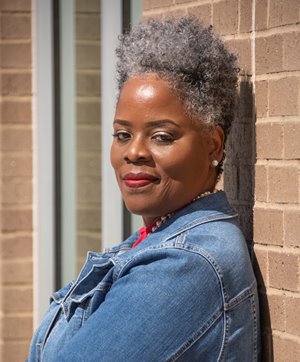Tia McCoy, neighborhood engagement director for Atlanta Habitat for Humanity and instructor at NeighborWorks America's upcoming Winter Virtual Training Institute (VTI), is thinking about changes: Evictions and foreclosure moratoria ending, an ever-changing pandemic, and the impact these things have on credit. How can housing practitioners keep up as they work to help residents stay in their homes?
McCoy's new course, "Navigating Credit Concerns Amidst an Eviction/Foreclosure," is one of dozens of NeighborWorks trainings designed to help housing practitioners "keep up." The course will be a part of the VTI to be held Feb. 7 -11.
 "A lot's been happening related to evictions," says McCoy. "Much is still happening. Understanding the volatile housing and credit situation will not only help to get us through this crisis, but as counselors and coaches, it will help build our skills for longevity beyond the pandemic."
"A lot's been happening related to evictions," says McCoy. "Much is still happening. Understanding the volatile housing and credit situation will not only help to get us through this crisis, but as counselors and coaches, it will help build our skills for longevity beyond the pandemic."
Afterall, even in times of national economic stability, there can be personal upheaval. Evictions and foreclosures still happen. And housing practitioners still work to prevent them – and to help clients see beyond them, McCoy says.
That's what McCoy's course is about: Helping counselors navigate constant changes surrounding evictions and how they may impact families. "It's important to help families look at their credit and minimize or manage the impact to it. It's important to help families recover from the impact."
It's also important to bust myths related to eviction and foreclosure, ensuring that clients can differentiate between fact and "what the street says." (True or false: Evictions show up on your credit report. The answer, McCoy reveals in her course, is surprisingly "false.")
As reality begins to hit, McCoy says it's important for practitioners to position themselves as "the go-to" person. "These are tough conversations to have with families who could be, in their minds, losing everything. But if we're confident in how to guide them, we can build their confidence in knowing how to recover."
An economic crisis hits each individual differently, shares Johnette Brown, director of housing, wealth building and community for the Urban League of the Greater Atlanta and a VTI attendee. "We're here to help clients get on a good path after we satisfy the crisis situation – prevent foreclosures or evictions and set them on a path to sustainability." For those on her team who haven't worked through a crisis situation, there are many new things to learn.
"I'm setting them all up for classes through NeighborWorks," says Brown. She remembers the 2008 foreclosure crisis, and "there's hope there at the end." But there are both financial and emotional implications to work through.
NeighborWorks training institutes have drawn thousands of housing practitioners inside and outside the NeighborWorks network. McCoy has taught a number of them. Her new course includes resources to help practitioners find out what funding is still available to help their clients and more.
Lisa Getter, vice president of National Real Estate Programs for NeighborWorks, says the risks of eviction and foreclosure didn't just arrive at our shores with COVID-19 in March 2020. "The ongoing pandemic has simply exacerbated the problems that have always existed." Educational training through the VTI can help housing counselors navigate resources that are constantly changing, she adds. "Our work in financial coaching is critically important in a crisis. It is also critically important to helping people recover from the aftermath of financial devastation and in positioning them to be better prepared the next time to withstand the storm."
01/14/2022

